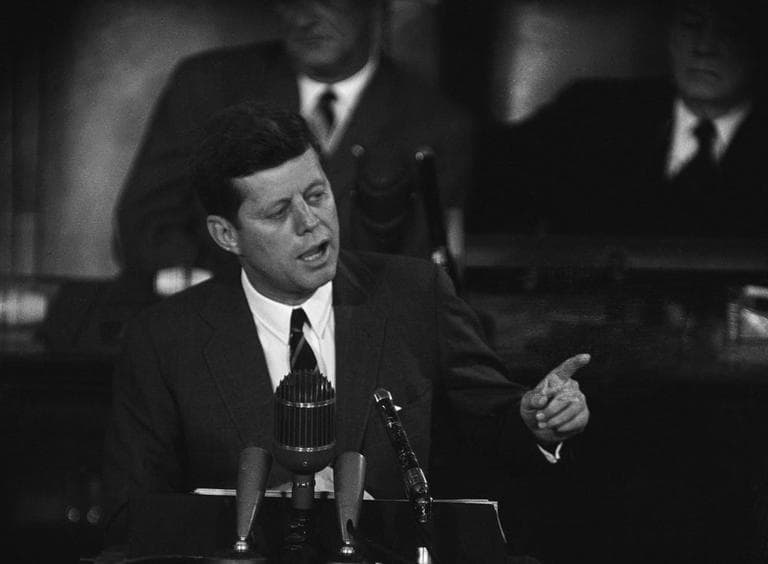Advertisement
JFK Questioned Space Program's Purpose
Resume
Fifty years ago Wednesday, President John F. Kennedy gave a major address on the trajectory of the space program before a joint session of Congress.
"Now it is time to take longer strides, time for a great new American enterprise, time for this nation to take a clearly leading role in space achievement, which in many ways may hold the key to our future on earth," Kennedy said.
Those words mark a major turning point in the American space program. It was one of Kennedy's first public challenges to the nation, that America send a man to the moon before the close of the 1960s.
Kennedy sounds assured in the speech. But that confidence belies serious reservations the president had about the American space program, even as he was trying to sell the nation on the most ambitious scientific mission ventured to date.
In a 1963 White House recording, released Wednesday by the John F. Kennedy library, Kennedy questions what became the basic tenets of NASA's success.
"Do you think landing a man on the moon is a good idea?" Kennedy asks then-NASA administrator James Webb.
Kennedy seemed to be seeking affirmation, even support, for what he was asking the nation to undertake. And he had obviously recognized the answer's political implications.
In the recording, Kenneday asks Webb, "If I get re-elected, I’m not — we’re not — going to the moon in my — in our — period are we?"
"No," Webb replies. "But I will tell you what will be accomplished while you're president, and it will be one of the most important things that's been done in this nation: a basic need to use technology for total national power."
Total national power, Kennedy notes, in the midst of the Cold War.
"But it seems to me what we’ve got to try and do," Kennedy says, "we’ve got to wrap around in this country a military use for what we’re doing and spending in space. If we don’t, it does look like a stunt and too much money."
Kennedy asks Webb whether the mission can be done cheaper. Webb again tells him no, but goes on to reassure the president that America's future must include manned space exploration. Kennedy agrees.
"I think this can be an asset, this program," Kennedy said. "I think in time, it’s like a lot of things, this is mid- journey and therefore everybody says ‘What the hell are we making this trip for?’ But at the end of the thing they may be glad we made it."
Which of course, the United States was, when Neil Armstrong set foot on the moon, July 20, 1969.
More:
This segment aired on May 25, 2011.